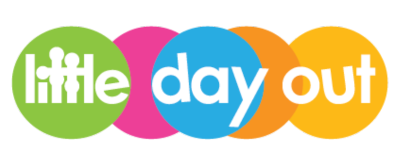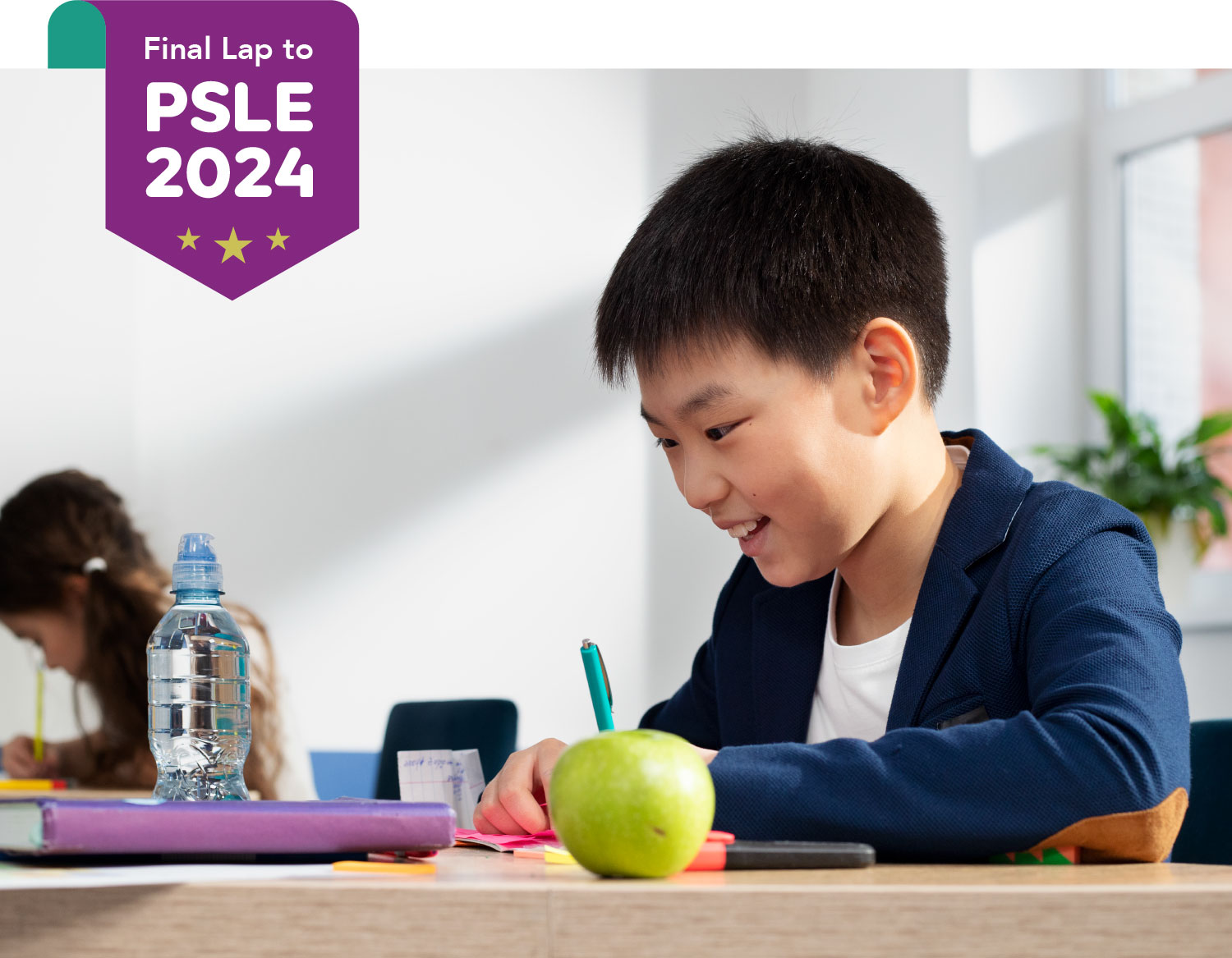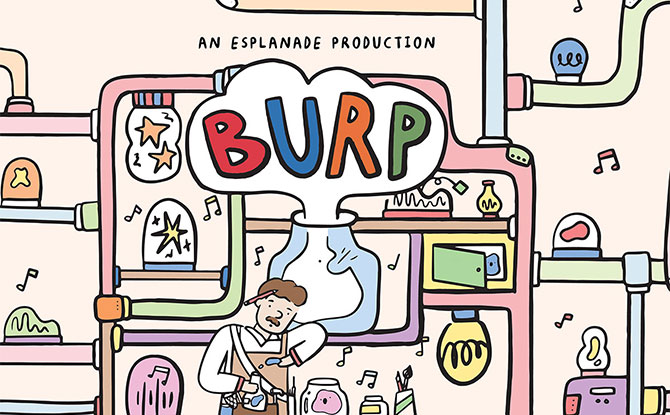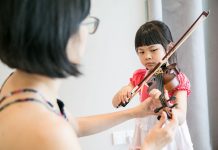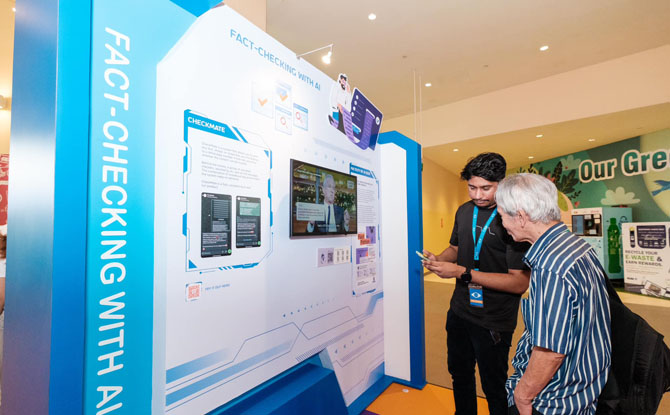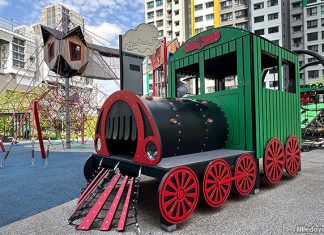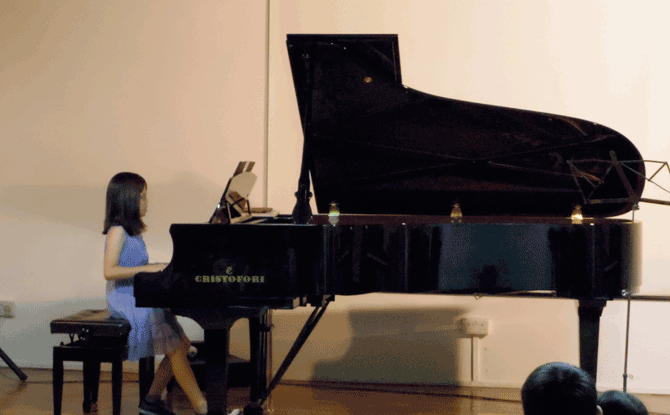
Piano lessons are the go-to music lessons whenever people think about having their kids learn music.
With so many private teachers and music schools in Singapore, should parents choose private or group lessons? Which teaching method? Is the piano the best instrument to start with? How do you spot the piano teacher from hell?
Little Day Out’s Ask The Experts (ATE) series explores the top questions parents have of courses and lessons – as well as potential landmines to avoid.
In this ATE on piano classes, we spoke with teachers and schoolowners trained in early childhood music education pedagogy to answer our twinkling questions.
BE PSLE-READY: Join Expert Educators for Revision Boosters to Empower P6 Students
BURP: Join the Sound Collector on a Whimsical Chase at Esplanade – Theatres on the Bay
WEEKEND IDEAS: Get Inspirational Ideas of Things to Do
OUR PANEL
 Olivia Riddell (OR)
Olivia Riddell (OR)
President & International Director, Music for Young Children®
Olivia specialises in early childhood music education, and is an active piano teacher for young children. She owns the international music method Music for Young Children® – and teaches children as young as two years old. She achieved Grade 10 piano, Grade 9 singing and Grade 8 flute by the age of 16 from the Royal Conservatory of Music in Canada (RCM).
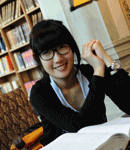 Sheila Victoria Pietono (SP)
Sheila Victoria Pietono (SP)
Co-founder, Juls Music Agency and Music Educator at Forte Music Academy
With a Bachelor of Music (Honours) in Piano Performance from Yong Siew Toh Conservatory of Music (NUS), Sheila moved to Singapore from Indonesia and discovered her love for early childhood music education. Sheila hopes that children don’t get stressed up about passing music exams, as music is “much more than that”.
 Valerie Chan (VC)
Valerie Chan (VC)
Piano teacher, accompanist, keyboardist
Valerie has been teaching both classical and pop piano for six years. Her students range from four-year-old kids to a 60-year-old lady. Other than the piano, she also teaches singing in primary and secondary school choirs, and accompanies them for performances on piano. She holds a Grade 8 in Music Theory with Merit and ATCL Diploma in Piano Accompaniment.
How do piano lessons benefit kids?
OR: Piano lessons benefit children as it allows them to explore and experience their emotions. Research has proven that it engages two areas of the brain (versus just one); therefore strengthening that child’s ability to focus, think through situations and solutions and adapt to their environment better. The benefits are endless for children who take piano lessons. For instance, they have higher scores in school – especially in math and problem solving situations.
SP: Music lessons are able to improve children’s cognitive, physical, emotional, and social skills, as well as character building. When a child starts to learn how to play an instrument, first they are training motor, visual, aural skills. When things get more complicated, the character-building process kicks in. Learning needs perseverance, discipline and self-control which will be useful for the child’s future no matter which what profession they end up.
VC: Learning the piano will help the stimulate the brain. When the child learns to play the piano, they will learn to hear and process different sounds, and this trains their brain to differentiate certain sounds. It also improves a child’s hand-eye coordination and motor skills, which will helps in other areas, such as dance or sports. When kids learn how to set aside time every day to practise the piano, they will learn how to manage time when they grow up.
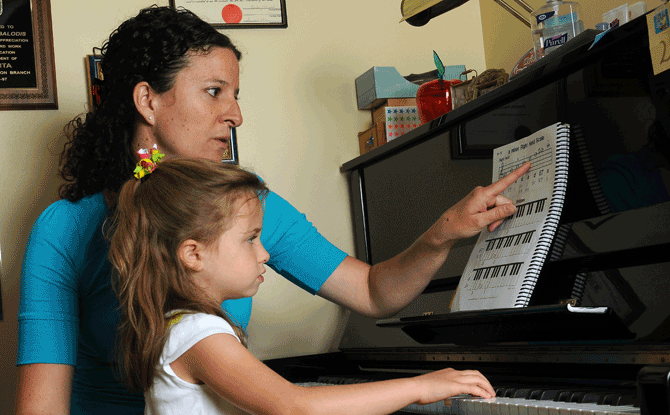
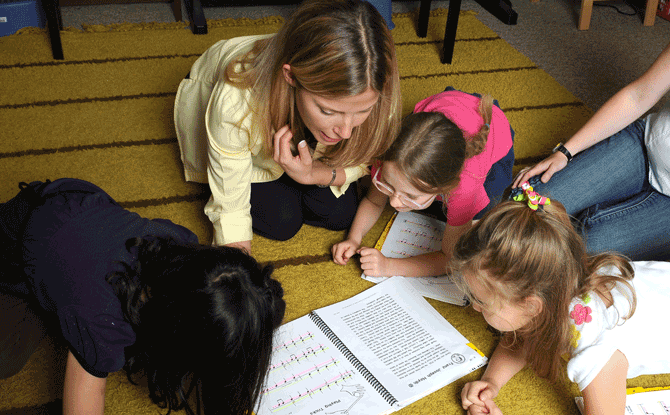
Is piano a suitable instrument for a start in music lessons? Why?
OR: Piano is probably the best instrument for children to start with. When you are learning to read music, you have to learn how to translate what you are reading on the paper/music to your instrument. Learning the piano first simplifies this process as when you read a note, you simply press that key on the piano – versus if you start with a different instrument, then you also have to learn the specific fingering to sound that tone or pitch.
SP: There are three types of instruments: Rhythmic, melodic, and harmonic instruments. For children below three years old, rhythmic instruments would be an easier instrument to begin with as the child can sing and tap rhythmic instruments together. In terms of harmonic instruments, piano might be a good instrument to start with. The child can see all the keys right in front of her, but they are not too close to her eyes. Also, kids do not have to worry about pitching (out-of-tune notes). Sometimes it can get very frustrating to learn melodic instruments without a fixed pitch, for example the violin. Furthermore, if the position of the hand is really close to the eyes, makes everything become more challenging at the beginning.
VC: The piano is rather suitable as a start because learning the piano involves both the treble clef and bass clef, making it easier for kids to learn the notes and understand theory better.
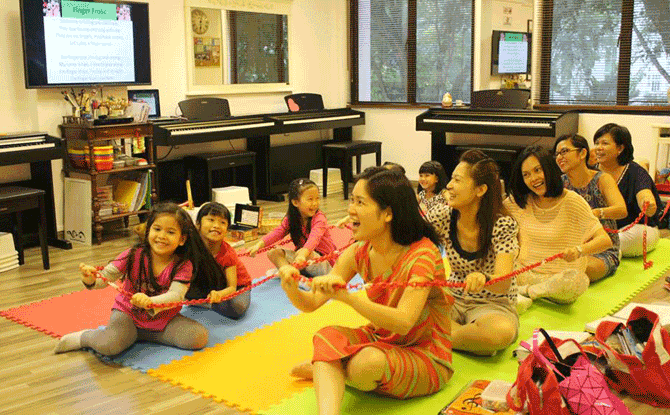
How do parents know which instrument to pick when starting out? Or should this choice come later?
OR: Parents generally go with the instrument that they started learning with. It’s a natural choice as that is a benchmark for their comfort level. By learning how to read music and play the piano first, you set a very firm and wide foundation of knowledge – for note reading, rhythm, articulation, etc. Every single element that children learn can then be applied to the next instrument (whether it is drums, guitar, violin, etc.) – and the only “new” thing that the child has to learn is how to play that instrument.
SP: Children should be exposed to as many instruments as possible when they are young so that they can have enough imagination for sounds from an early age. Piano is a good start, before the child decides to change to another melodic instrument (for example the violin), or to further their explorations with the piano.
VC: Most children learn to play the instrument that is chosen by their parents. However, not every child will like the first instrument they take up. As a start, parents can let the child experience different instruments first before letting the child decide on his favourite later on.
How should these lessons be taught? How should piano NOT be taught?
OR: The choice of environment that best suits the age of the child is important. For example, when starting children at the piano at the age of three, this should be done in group as that child is not only learning music, but also how to behave in a social situation and listen to another adult (besides their parent/guardian). Young children need the ability to move and transition from one activity to the next.
Piano should NOT be taught in an environment that does not match their developmental needs. Group lessons offer the ability to continually build their foundation of knowledge, so when it is time to move to private lessons, their foundation is wide and strong.
One common misconception about piano classes is that it is not supposed to be fun. Children who have generally started learning only in a private environment peak quickly and generally do not sustain their music learning past mid-teenage years.
SP: There is no right or wrong way to teach music. The common misunderstanding that piano lessons should have a results-driven approach. It is common to forget that music is an art, and it takes time to groom somebody to have more understanding about what music is all about.
VC: Most piano teachers are proficient players themselves but are not trained in the methods of teaching. When teaching young kids, teachers should use easy words that kids can associate with to explain technical terms. For example, which teaching musical notes (A to G), I use animal names like Ant, Bear and Cat, and make up a story involving these animals in sequence. This will help the kids to remember better.
I have heard about kids who fear the piano because of punishment from their teachers. Some teachers use verbal abuse or show various signs of displeasure (like sighing or scolding).
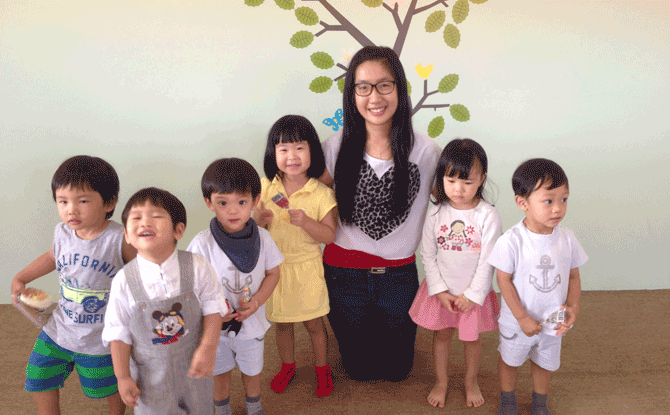
What should parents consider before thinking of sending their child for piano lessons?
OR: Consider the teacher’s personality – does it match well with your child’s energy? Some teachers are “high energy” and this is great, but some children need a “quieter” environment. Still with energy, of course, but presented in a quieter manner. All children are open to learning music. I have never met a child that actually knows (at the age of three or more) whether or not they are going to like something – until they have experience it. Try not to pre-judge your child. They may “seem” like they have no musical talent, but it might just be because of the opportunities – or lack thereof – that they have had to experience it.
SP: No child likes to sit down for a long time and do their homework. Similarly, no child likes to be forced to practise piano. If parents expect the kids to practise by themselves without monitoring them, sending the child to music lessons is of little use as the child will have no motivation to actually practise. Remember, one of the benefits from learning music is character building. And it is a long learning journey; there is no shortcut to it.
VC: In Singapore, I think that our kids’ schedule are packed with tons of enrichment classes. In order not to tire the kids, parents should consider if their child has enough time to learning and practise the piano. What do the parents want out of the piano lessons? Is it merely for the music certificates, or teaching the child to appreciate music? This will determine the route your kid’s teacher will take.
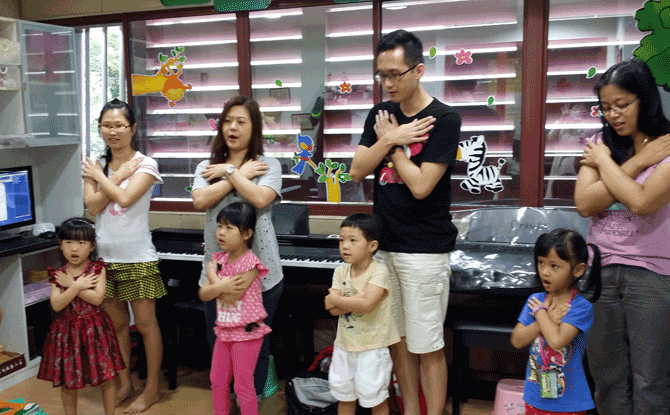
Piano exams vs. music appreciation – which is more important? And how should parents and kids manage their expectations?
OR: I think what is important to define here is that when you generally think of “appreciation”, you assume that this does not involve structure – whereas when we think of exams, we immediately think of structure. There are music classes available for young children that are purely appreciation (move to the music, how does the music make you feel, etc.). However, there are music/piano classes available that do provide structure before you move into the examination process.
Working towards a goal is something that I have found is very important for both parents and children – and this speaks towards exams. However, you are not going to have a wonderful performance from that child if they do not have appreciation for the music that they are playing.
SP: If we are referring to a life-long journey, I would say music appreciation is much more important compared to piano exams. For instance, I took few international certifications when I was in Secondary One. I had some friends who even passed their Grade 8 examination when they were nine years old! Apparently now they are working in different fields as they feel bitterness towards music from their childhood. They stopped playing the piano once they reached their teens.
VC: Music appreciation is much more important. Piano exams should be seen as a benchmark of the student’s learning progress. It is a means to an end, but not an end itself. I have seen students hate playing piano because the constant focus on exams and grades killed their joy of learning. Parents should focus on seeing their kids enjoy playing and improve their skills. Exams can be taken to attain a certain level of proficiency and for continual education into music colleges.
What should parents be wary of – what are the red flags?
OR: Crying or becoming overly emotional when it comes time to go to the music lesson. This tells me that the child does not like something within the classroom environment (i.e. the teacher). Outbreaks of emotions/fighting, etc. when it comes time to practise. Young children will ALWAYS push back when it comes to the time to practise; however, if there this behaviour continue to escalate and becomes uncontrollable, the child is obviously being pushed in a direction that needs to be addressed. Perhaps they are worried about disappointing their parents, but just do not like learning that particular instrument.
SP: When your child is learning from one book to the next book (all by the same publisher or within the same edition) without skipping any pieces. I believe that students would benefit more and be more creative by learning different repertoires instead of one at a time. Doing just three piano pieces a year in order to pass exams show that the teacher is not making efforts to expand their repertoire.
[Be wary] when parents are not allowed to sit in the lessons. Usually children are very playful and they will not remember fully what the teacher said in the lesson. Therefore parents or any adult companion can help their individual practise if they sit in the lessons.VC: When the child stops sharing his joy of learning. Children cannot hide their emotions. When they learn something interesting in class, they will be excited to tell their parents about it. However, when they stop doing so, it may be because they are losing their interest, or classes have become a dread to them. [Also, be concerned] when the child has a fear of going for lessons. One of my student’s parents shared with me that his son feared going for piano lessons [with a previous teacher] because he was afraid the teacher would pinch his fingers. This is bad because it is creating psychological fear in the child.

How can parents tell if their child has a talent for the instrument? What are indications that they should pursue music “seriously”?
OR: Parents can tell if their child has a talent for an instrument by the way that that child reacts (emotionally and physically). Some children are drawn to piano from infancy, wanting to not simply “smash” the keys, but explore the high/low sounds of the piano. Children who are able to match pitches from an early age (around two years old), and/or spontaneously start singing and creating their own songs also tells me that this child should be in music.
The “serious” side comes a little after the initial lessons. You have to be able to see how your child response to the process of practising. When your child wants to spend a long period of time at the piano practising (no matter what age), enjoys the process of learning and working through challenging segments of music; this would tell me that the child needs to move to a more serious level of study.
SP: Parents can tell if their child has an innate talent for the instrument if they see some indicators such as the child is growing musically and their music are more mature than their friends of the same age. Or simply, they love music lessons and practise without being forced to! In order to pursue music further, hard work is needed more than just talent.
VC: If the child is motivated to practise on his own, and you don’t have to tell him to do it. An interested child will even tell the teacher what song they like, and want to learn to play it on the piano. He will want to share his love of the piano with other kids. He also finds joy in performing for others.
Here are some questions parents should ask the teacher or school when signing up their child for classes:
- Which teaching method do you know, which one are you using and why? Is it a proven method of success?
- What does the school/teacher work towards? What is the ultimate end result that the school/teacher is working towards for your child? (i.e. – exams, recitals, festival, etc.)?
- What are the credentials of teachers – not only with the teacher’s own personally study, but in working with children?
- What are the school’s/teacher’s policies regarding expected practise at home, missed lessons, parent participation and support?
- Parents should ask to audit or observe a class orlesson of that school or private studio – even if just for 5 minutes. What you see during an actual live lesson can be extremely helpful for the parents and, if the school or teacher are not open to being observed, this would be a red flag.
- How is each lesson conducted? Parents should ask how each lesson is structured, and whether there is a balance in teaching practical and theory.
- What are the opportunities for students to learn piano holistically? Other than just learning in class, what are the opportunities provided by the teacher (or music school) to let the student learn more about the piano?
- What is your experience in teaching young children? Other than finding out about the teacher’s glorious academic qualification, parents should ask about their teaching experience, their methods of helping kids learn difficult techniques, or ways to help students prepare for examination or performances.
Images courtesy of Olivia Riddell, Sheila Victoria Pietono and Valerie Chan.

